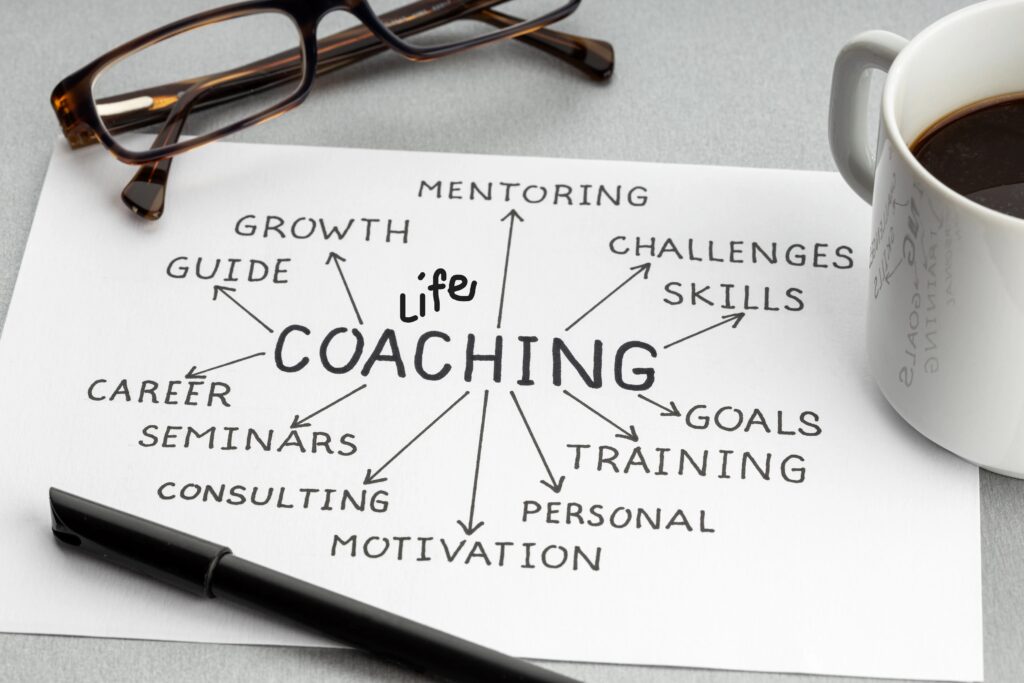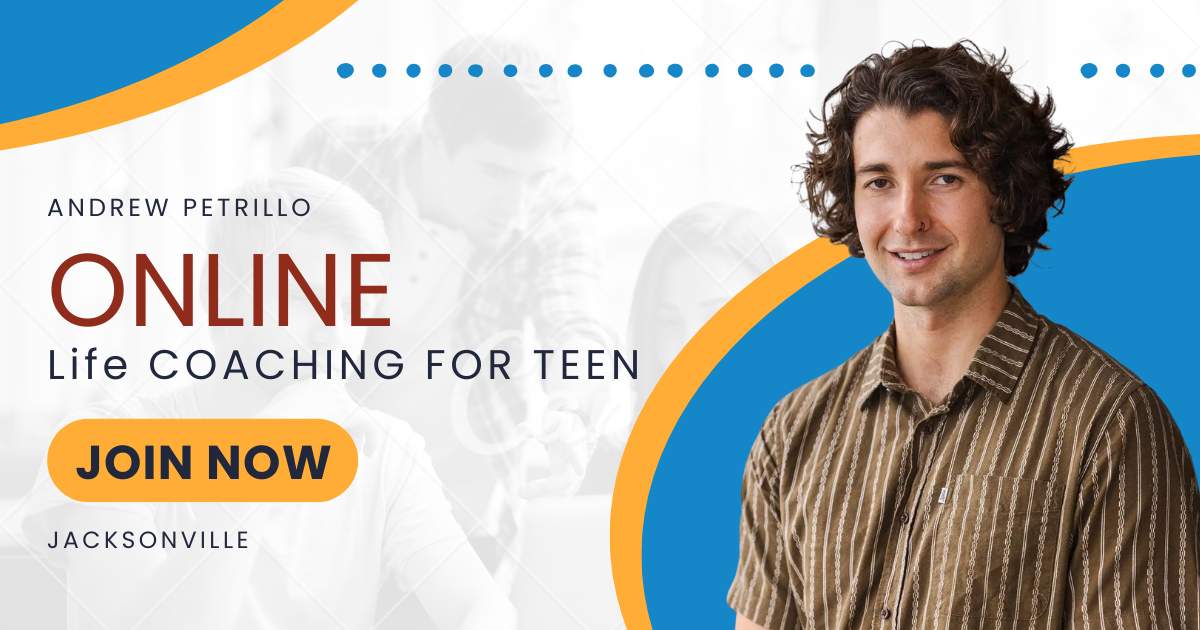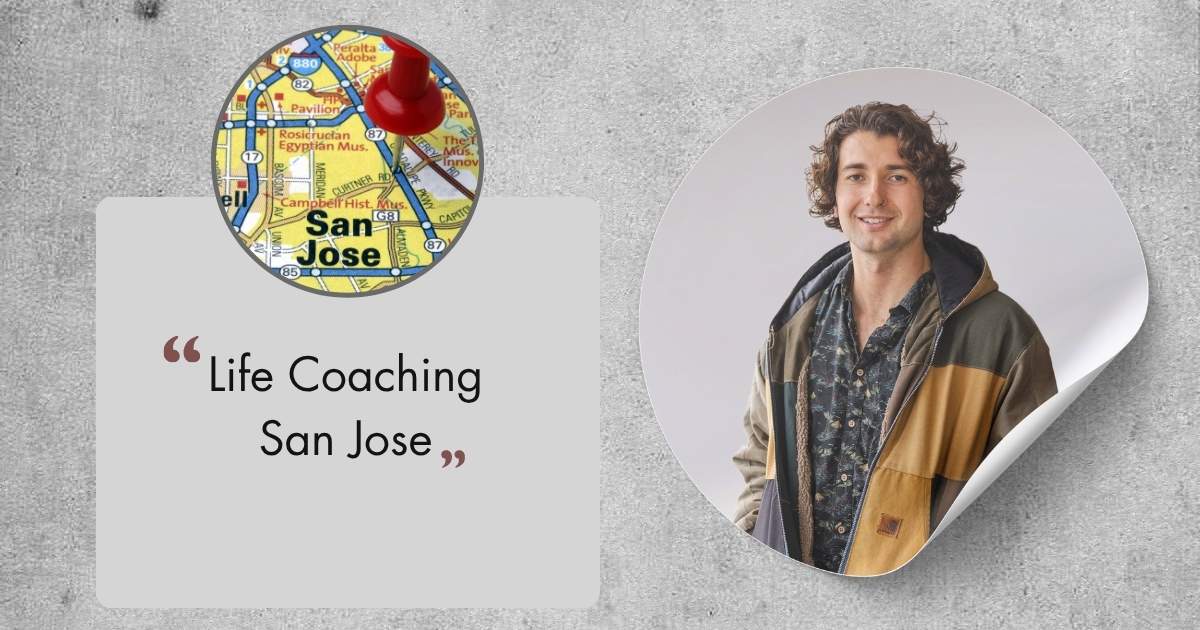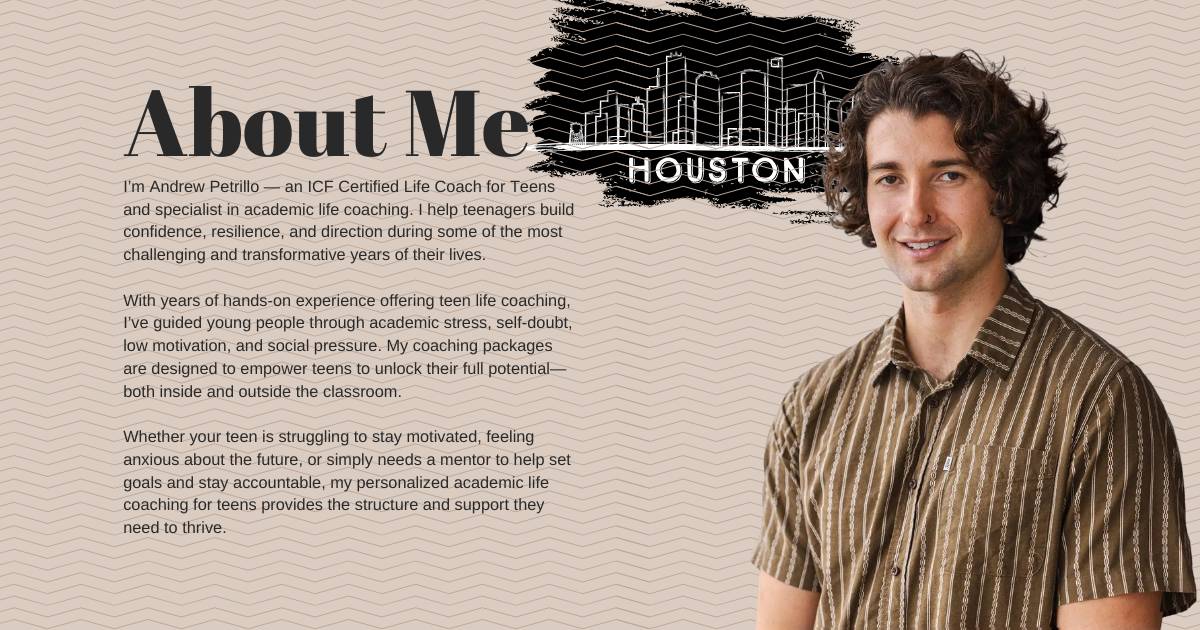A life coach is a trained person who helps others set goals, solve problems, and make better life choices. They guide you with clear steps so you can move forward and feel more in control.

Hey,
Ever feel like you’re stuck in the same place—no matter how hard you try? You’ve got goals. You’ve got dreams. But life keeps getting in the way. Days turn into weeks. Weeks into years. And you’re still asking, “What am I doing with my life?”
You’re not alone. Millions feel lost, tired, and frustrated. That’s exactly where a life coach can change everything. Not a therapist. Not a motivational speaker. A real person who helps you figure out what’s next—and how to get there.
Here, I am discussing what a life coach is, who needs one, what to expect, and why it might be the best decision you ever make.
Let’s be real. Life is hard. But you don’t have to do it alone.
What Is A Life Coach?
A life coach is a trained expert who helps you find direction, set meaningful targets, and take control of your life. They don’t focus on past emotional wounds like therapists do. Instead, their focus stays on the present moment and the path ahead.
Life coaches ask thoughtful questions and listen carefully to what you say. Then, they help you create a clear, practical plan to reach your personal and professional dreams. Their goal is to guide you toward real progress, step by step.

Traits That Make a Life Coach Effective
- Active Listener: They offer a judgment-free space where you can openly share your thoughts and worries.
- Goal Builder: They help you define clear and reachable goals that match your unique ambitions.
- Accountability Partner: They check in to make sure you stick to your plans and keep moving forward.
- Encourager: Through positive support, they motivate you to leave your comfort zone and welcome growth.
What Kinds of Life Coaches Exist?
Life coaching isn’t one-size-fits-all. Different coaches help with different life problems. From love to career to health — there’s a coach for that. The right one depends on what you need most right now.
Here are some of the most common types with what they help with:
| Type of Life Coach | What They Help With | Best For You If… |
| Career Coach | Job searches, Job changes, CV writing, Interview prep, promotions, career planning, Workplace stress, Planning your next step | You feel stuck in your job or want a better one |
| Personal Development Coach | Build confidence, Stop self-doubt, Control stress, Improve communication, Grow emotional strength | You want to grow and feel stronger inside |
| Health & Wellness Coach | A health coach supports your full wellness plan. That means: Healthy eating, Exercise routines, Better sleep, Stress relief, Lifestyle tracking | You want more energy, less stress, better health |
| Relationship Coach | A relationship coach helps with: Better communication, Understanding your partner, Healthy dating habits, Stronger emotional bonds, Breakup recovery | You feel disconnected or unhappy in relationships |
| Confidence Coach | A confidence coach helps you believe in yourself again. They’ll guide you through: Public speaking fears, Social anxiety, Low self-worth, Fear of judgment, Negative self-talk | You doubt yourself and want to speak up |
| Financial Coach | A financial coach helps you take back control.You’ll learn how to: Budget wisely, Set money goals, Build savings, Break bad money habits, Stop feeling ashamed | You struggle with money or want better habits |
| Spiritual Coach | Purpose, inner peace, belief systems, energy work, mindfulness | You feel lost inside or need deeper clarity |
| Productivity Coach | Build better routines, Focus longer, Kill procrastination, Balance work and life, Use your time well | You feel busy but don’t get things done |
| Teen/Youth Coach | Young people feel pressure too. A youth coach helps teens: deal with stress, find their voice, study better, handle peer pressure, set future goals | You’re a teen or parent of a stressed-out teen |
| Life Transition Coach | Divorce, grief, retirement, moving, fear of starting over, Building a new routine | You’re facing big change and don’t know what’s next |
Think about what’s bothering you most. Is it your career? Your health? Your heart?
There’s a coach for almost every challenge in life.
Not because you’re weak. But because growth needs guidance.
How to Choose the Right Life Coach
To find the right life coach, first know what you want, check their training, read client reviews, try a free session, and trust how you feel. Don’t rush — this choice matters.
Finding the right life coach isn’t about luck. It’s about fit. The right coach won’t just help you grow — they’ll help you believe again.
So, how do you choose the one that gets you?

Let’s break it down:
1. Know What You Want First
Before you even start searching, pause and think. What do you need help with? Is it your career, emotions, school, or relationships? Knowing your goal will help you find the right coach.
Life coaches come in many types. Some focus on teens. Others help with stress or goals. Don’t just go for a random coach. Pick one that matches your current needs.
2. Check Their Credentials
Coaching is not just about giving advice. A real life coach has training. They learn skills, tools, and ethics. Look for certifications from places like ICF (International Coaching Federation) or NLP schools.
Certified coaches follow a code of conduct. That means they are trained to help, not just talk. It shows they take their job seriously — and that’s what you need.
3. Look at Client Reviews
What others say matters. Check their reviews. Read real feedback from past clients. Did people feel supported? Did they make real progress? If the reviews sound fake or are missing, that’s a red flag. A good coach will have honest, positive feedback that proves their work helps people.
4. Try a Free Consultation
Most coaches offer a first free session. Use it. Talk to them. Ask questions. See how they speak. Listen to how they make you feel. Are they calm and kind? Are they focused and clear?
Every coach has a style. Some push you. Some support you softly. You’ll know when the fit feels right. It’s okay to try a few before you choose.
5.Make Sure You Feel Safe and Seen
Trust how you feel. If something feels off, don’t go ahead. A coach should feel like a safe space. You should feel heard, respected, and motivated. If you feel drained or judged, move on. Your gut knows when something is right. Listen to it.
Why You Choose Andrew Teen Life Coaching for Your Teen
If you are a teen — or the parent of one — and need real, step-by-step support, check out Andrew Teen Life Coaching. My service helps teens set clear goals, manage emotions, and build confidence.
I don’t use lectures or pressure. I guide teens with care, clarity, and calm. Every step is built around who the teen is, not just what others expect. I listened to everything first. Then I guide.
You can visit the site: Andrew Teen Life Coaching and explore how it works. You’ll find personal support, not cookie-cutter coaching. Whether it’s stress from school, confusion about life, or low confidence, I help teens take one step at a time — and feel proud of it.
How Is a Life Coach Different from a Therapist?
Life coaches and therapists both help people improve their lives, but they do so in different ways and focus on different areas. Therapists deal with the past. Life coaches focus on the future.
Here’s how they differ:
1. Focus and Goals
Life Coach: Focuses on helping you set and achieve personal or professional goals. They work with you on where you want to go in life and how to get there. It’s about growth, motivation, and future planning.
Therapist: Focuses more on healing emotional wounds, mental health issues, and past traumas. Therapy often deals with diagnosing and treating mental health conditions like anxiety or depression.
2. Approach
Life Coach: Uses motivation, encouragement, and practical strategies. They help you build new habits, clarify your vision, and stay accountable. The relationship is usually more forward-looking.
Therapist: Uses clinical methods and psychological theories. They may explore your past to understand patterns and resolve deep emotional issues.
3. Qualifications
Life Coach: There is no standardized licensing or degree required to be a life coach, though many get certified through coaching programs.
Therapist: Requires advanced degrees (master’s or doctorate) and must be licensed by regulatory bodies.
4. Topics Covered
Life Coach: Career, relationships, confidence, work-life balance, personal growth, and performance improvement.
Therapist: Mental health disorders, trauma, emotional distress, psychological evaluation, and sometimes medication management (if a psychiatrist).
5. Length and Structure
Life Coach: Usually short to medium term, focused on achieving specific goals in a set number of sessions.
Therapist: Can be long-term or short-term depending on the need, often more flexible in duration.
If you want to grow, improve your life, or reach specific goals, a life coach can help you move forward. If you are struggling with mental health challenges, emotional pain, or need clinical support, a therapist is the right choice.
The Benefits of Working with a Life Coach
Engaging with a life coach can yield transformative results across various aspects of life. Here are some compelling benefits:
- Clarity and Direction: Many individuals find themselves at a crossroads, unsure of their next steps. A life coach helps clarify goals and enhances focus.
- Personal Growth: Coaches assist clients in identifying limiting beliefs and work collaboratively to overcome them.
- Improved Relationships: Enhanced self-awareness often leads to better communication and healthier relationships with others.
- Increased Confidence: Regular guidance and support from a life coach can significantly boost a client’s confidence and self-esteem.
- Work-Life Balance: Life coaches often help clients achieve a better balance between their professional and personal life, leading to enhanced well-being.
Real Stories from My Coaching Journey
At Andrew Teen Life Coaching, I’ve worked with many amazing young people. Each one came in with a struggle. Each one left stronger, more focused, and more confident.
Let me share two real stories that show just how powerful this work can be.
Emily: From Self-Doubt to Self-Belief
Emily was 15. She walked into our first session full of doubt. Her friends always compared her to others. She felt like she wasn’t enough.
But as we talked, I saw a spark. She had a gift for writing – something she never took seriously.
Together, we created simple, clear goals. She joined a local writers’ group. And started writing short stories every week. She even read her work aloud, something she once feared.
Month by month, she changed. Emily went from hiding her voice to sharing it boldly.
She won a local writing contest and even started her own blog.
Now, she doesn’t shrink when others speak. She stands tall – proud of who she is and what she creates.
Jake: Reigniting Academic Drive
Jake was 17. He sat across from me, shoulders low, unsure where life was going. He hated school. He felt lost and unmotivated.
Instead of pushing him to study harder, I asked, “What excites you?” We found it — technology. Coding, gaming, design — his eyes lit up.
So we made a plan. We tied his school goals to tech. Science projects turned into coding challenges. English essays became tech reviews.
Bit by bit, he re-engaged. Grades improved. So did his mindset. He started applying for internships and exploring college programs.
Today, Jake is chasing a career in computer science. And he finally believes in his own future.
Every teen is different. But one thing is the same: They all need support. Sometimes that support is a plan. Sometimes it’s someone who listens without judging. Other times, it’s just a safe space to dream again.
At Andrew Teen Life Coaching, I don’t fix teens. I walk with them — as they fix their own path, one brave step at a time.
Frequently Asked Questions About Teen Life Coaching
How long are coaching sessions?
Sessions typically last around 30- 60 minutes and can be conducted weekly or bi-weekly based on need.
What age should teens start life coaching?
Teen coaching can begin as early as 13, depending on the individual’s readiness and maturity.
Is coaching suitable for all teens?
Yes, coaching can benefit any teen, whether they are struggling with challenges or simply seeking to explore personal development.
What if the teen does not connect with the coach?
Building rapport is critical in coaching. If a teen feels disconnected, it’s perfectly acceptable to seek a different coaching style or approach.
Is life coaching confidential?
Yes. Like therapy, coaching sessions are private and confidential. For teens under 18, I keep parents updated only on goal progress—not on every word shared—unless there’s a safety concern.
How is coaching different from mentoring or tutoring?
Tutors teach subjects. Mentors share personal advice. Coaches, however, ask questions and guide you to find your own answers. It’s about building life skills and clarity, not just giving instructions.
What if a teen doesn’t want coaching but the parent does?
Coaching only works when the teen is willing. At Andrew Teen Life Coaching, I always start with a discovery call to see if the teen feels safe, seen, and open to the process. No pressure, just connection.
Can coaching be done entirely online?
Yes. Online sessions via Zoom or video call are very common and effective. Teens often prefer the comfort of home, and virtual coaching offers flexibility for busy schedules.
Verdict: Your Next Step Starts Now
Life doesn’t come with a manual. Sometimes, even the strongest people need support. And that’s okay.
A life coach doesn’t have all the answers — but they’ll help you find your own. Whether you’re a teen struggling with school pressure or a parent watching your child lose confidence, coaching offers a clear path forward.
You don’t have to feel stuck anymore. You don’t have to carry everything on your own. With the right coach, change becomes possible — one step at a time.
At Andrew Teen Life Coaching, I’ve seen quiet teens become confident leaders. I’ve seen stress turn into focus. Confusion turn into clarity. And I believe it can happen for you too.
If you’re ready to move forward, I’m here. Let’s take the first step together. Visit Andrew Teen Life Coaching to learn how we can start this journey — today.
Thanks for reading. If this article helped you, please share it with a friend or on social media. Someone else might need this today.


